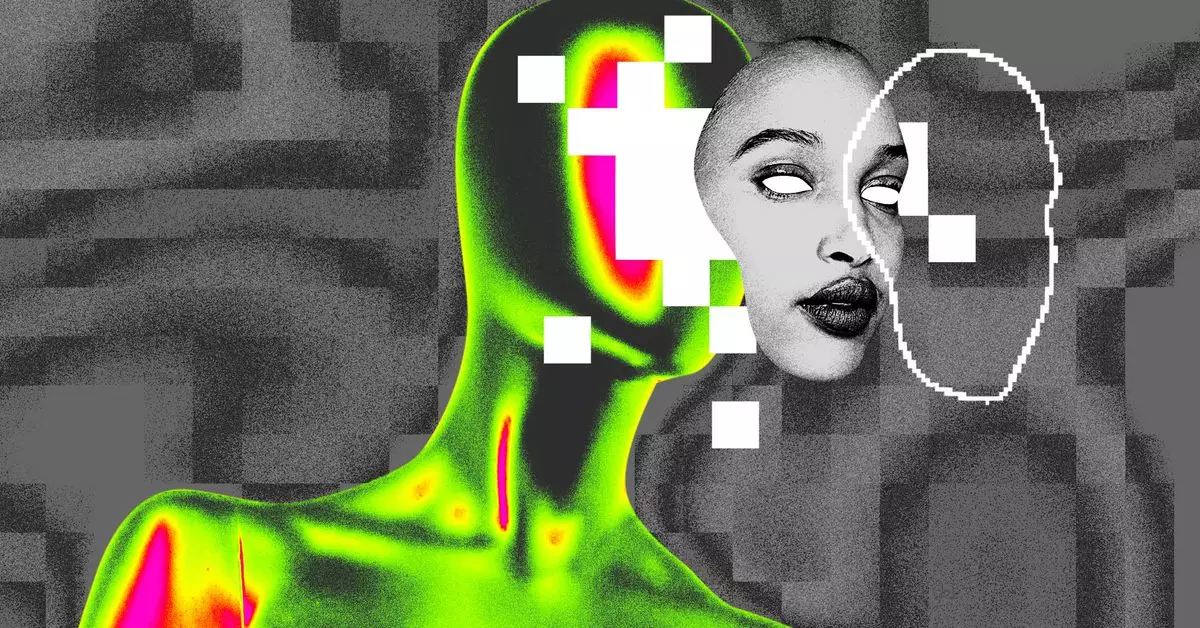In the age of social media, a picture is often worth a thousand carefully curated edits. Platforms like TikTok, which cater to a predominantly youthful audience, are struggling with the psychological ramifications of beauty filters that users—especially teenagers—are exposed to daily. The allure of instant beautification can lead to unrealistic beauty standards, distorting self-image and heightening mental health issues among impressionable users. Understanding this alarming trend, TikTok is initiating significant changes aimed at curtailing the adverse effects of certain appearance-altering filters, particularly on its younger demographic.
TikTok has announced that it will implement age restrictions on specific beauty filters that affect users under 18. This move is a direct response to growing concerns highlighted in a report by the nonprofit organization Internet Matters. The report elucidated that beautifying filters can create a misleading perception of reality, making it difficult for children to discern between edited and authentic images. Filters that modify skin smoothness, facial structure, and eye size contribute to an environment of social pressure for youth, compelling them to conform to often unattainable beauty ideals. By restricting access to these psychological pitfalls, TikTok aims to foster a safer space for its younger users.
In a thoughtful approach to filter design, TikTok will exempt filters that are recognizable as humorous or cartoonish—think animal ears or exaggerated facial features—from these new restrictions. This decision recognizes that not all filters serve the same psychological purpose; while some may enhance or normalize beauty, others introduce playful, carefree interactions that do not contribute to distorted self-images. This creates a dichotomy within TikTok’s filter ecosystem and encourages users to explore features that embrace creativity rather than merely conforming to conventional beauty standards.
The implementation of these restrictions arises during TikTok’s European Safety Forum, emphasizing an awareness of regional needs in the ever-changing landscape of internet safety. However, it remains uncertain whether the changes will extend to other parts of the globe. TikTok has been asked for clarification on the geographic applicability of these measures, as the platform boasts over 175 million monthly users in Europe alone. The decisions made in this context may set important precedents for how social media platforms address issues of safety and mental well-being on a broader scale.
Alongside the introduction of filter age restrictions, TikTok is also rolling out new resources aimed at mental health support. Users will have access to local helplines connected to issues like self-harm, harassment, and suicidal thoughts, addressing a critical need in today’s digital landscape. The proactive measures taken by TikTok are commendable, showcasing their commitment to creating a supportive environment for all users—especially the vulnerable teenage demographic.
Christine Grahn, TikTok’s European public policy head, emphasizes the ongoing nature of conversations regarding safety and security on the platform. She advocates for continuous improvement, learning from community feedback, and collaborating with experts to better protect users. TikTok’s initiative to explore advanced machine-learning technologies aims to ensure that users under 13 are kept off the platform, adhering to safety regulations and further promoting a secure online space.
TikTok’s decisions to restrict beauty filters for underage users and introduce new mental health resources are essential strides towards improving the overall safety and well-being of its platform. While these modifications alone won’t mitigate all the concerns related to social media’s psychological impact, they reflect a growing recognition of the responsibilities that come with hosting a vast user base, particularly one that includes vulnerable adolescents. As TikTok continues to evolve, the hope remains that it will foster an environment where authenticity and self-acceptance shine in a sea of edits and appearances.

